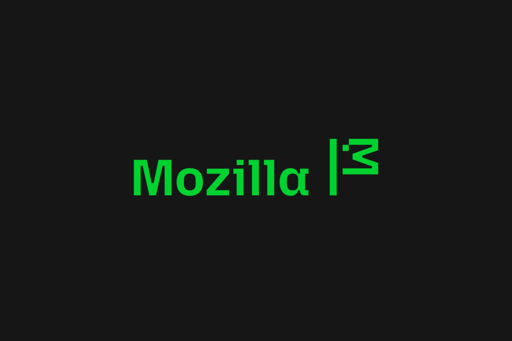Is Google about to destroy the web?
-
Damn, thats fuckin' metal, bro.
Also, the text to gif gave me a flashback of ~15 years ago. -
Google disagrees. In fact, the company tells the BBC that AI Overviews have been good for the web, and AI Mode will be no different. Google insists these features send users to "a greater diversity of websites" and the traffic is "higher quality" because people spend more time on the links they click.
However, the company hasn't provided data to back up these claims.
This is how we know they are lying.
More time per click is such a useless metric for the end user.
-
mostly shit already. ymmv
We're soon going to end up back in the early/mid 90s where the only way to find something is via a internet yellowpages.. only this time, not because search engines dont exist yet, but because they are completely worthless garbage.
-
Damn, thats fuckin' metal, bro.
Also, the text to gif gave me a flashback of ~15 years ago.feels like its 1998 and I'm listening to MTV while browsing the web on AOL with that gif, lol
-
mostly shit already. ymmv
Unpopular opinion: The missing business model for websites is killing the web. If there was a platform that would distribute a monthly fee to the websites we visit, the web would be much better.
50% could be allocated through traffic, 50% by choice. I could pay 20€ a month for example. Some would go to lemmy, some to my local newspaper, some to my favorite YouTube channels, authors or bloggers.
If enough people did this, investigative journalism would be funded, product testers wouldn't be reliant on sponsoring and hobbyists could gain serious funding without selling out.
-
Unpopular opinion: The missing business model for websites is killing the web. If there was a platform that would distribute a monthly fee to the websites we visit, the web would be much better.
50% could be allocated through traffic, 50% by choice. I could pay 20€ a month for example. Some would go to lemmy, some to my local newspaper, some to my favorite YouTube channels, authors or bloggers.
If enough people did this, investigative journalism would be funded, product testers wouldn't be reliant on sponsoring and hobbyists could gain serious funding without selling out.
I would love a if there was a standard websites would use to receive donations. An integrated browser addon that track what you visit and gives you a review before distributing funds after each month would be great. It should accumulate money to avoid transaction fees for tiny amounts.
-
Unpopular opinion: The missing business model for websites is killing the web. If there was a platform that would distribute a monthly fee to the websites we visit, the web would be much better.
50% could be allocated through traffic, 50% by choice. I could pay 20€ a month for example. Some would go to lemmy, some to my local newspaper, some to my favorite YouTube channels, authors or bloggers.
If enough people did this, investigative journalism would be funded, product testers wouldn't be reliant on sponsoring and hobbyists could gain serious funding without selling out.
This sounds exactly like what Brave is/was supposed to be/could have been.
-
We're soon going to end up back in the early/mid 90s where the only way to find something is via a internet yellowpages.. only this time, not because search engines dont exist yet, but because they are completely worthless garbage.
Don't forget to put your website on a webring!
https://
 .ws/
.ws/ -
Don't forget to put your website on a webring!
https://
 .ws/
.ws/Man I miss the old internet..
-
Man I miss the old internet..
Someone posted this the other day: https://goodinternetmagazine.com/building-a-slow-web/
I really liked the idea so I quickly made my personal site and put it on the indie webring. It's a tiny community but it's there.
-
I would love a if there was a standard websites would use to receive donations. An integrated browser addon that track what you visit and gives you a review before distributing funds after each month would be great. It should accumulate money to avoid transaction fees for tiny amounts.
May I introduce you to https://webmonetization.org/ ?
-

The Man Who Killed Google Search
Wanna listen to this story instead? Check out this week's Better Offline podcast, "The Man That Destroyed Google Search," available on Apple Podcasts, Spotify, and anywhere else you get your podcasts. UPDATE: Prabhakar has now been deposed as head of search, read here for more details. This is the story

Ed Zitron's Where's Your Ed At (www.wheresyoured.at)
I'm not a huge fan of Ed Zitron generally, he leans towards histrionic too much for my tastes, but he makes a compelling case here.
histrionic
True... yet nearly everybody else, maybe beside few like 404 media, seems to be either boot licking or access "journalism" so I get the "spicy" take.
-
Listen man, if thats what you think is best, you keep using them and try to effect change, good luck, im just not going to use services like that and have the problem solved for myself. Let me know when you've made something happen and I'll even apologise.
As another commenter put it, the approaches are not mutually exclusive. I've ditched most of Googles services over the past 5 years:
- Pixel --> Pixel w/ Graphene (If Graphene ever makes their own hardware, I will drop my Pixel in an instant)
- Gmail --> ProtonMail
- Google Calendar --> Proton Calendar
- Google.com --> Duckduckgo.com
- Google PlayStore --> FDroid
- Google Docs/Sheets --> Libre Office
- Google Keep --> Obsidian w/ sync
- Google Maps --> Organic Maps
- Google Home (never had this shit to begin with) --> Self-hosted Home Assistant
And I plan to continue that trend. I've personally gotten many of my friends and family to make these switches as well.
I don't need (or want) your weird, hypothetical, backhanded apology. However, I think you inadvertently carry water for Google when you muster up this false sense of superiority and blame everyone else for the problems that greedy tech bros create. But hey, if you simply can't stop yourself, then maybe adopt a more positive approach to getting people to switch, rather than assuming that everyone is dumber than you. Good luck!
-
As another commenter put it, the approaches are not mutually exclusive. I've ditched most of Googles services over the past 5 years:
- Pixel --> Pixel w/ Graphene (If Graphene ever makes their own hardware, I will drop my Pixel in an instant)
- Gmail --> ProtonMail
- Google Calendar --> Proton Calendar
- Google.com --> Duckduckgo.com
- Google PlayStore --> FDroid
- Google Docs/Sheets --> Libre Office
- Google Keep --> Obsidian w/ sync
- Google Maps --> Organic Maps
- Google Home (never had this shit to begin with) --> Self-hosted Home Assistant
And I plan to continue that trend. I've personally gotten many of my friends and family to make these switches as well.
I don't need (or want) your weird, hypothetical, backhanded apology. However, I think you inadvertently carry water for Google when you muster up this false sense of superiority and blame everyone else for the problems that greedy tech bros create. But hey, if you simply can't stop yourself, then maybe adopt a more positive approach to getting people to switch, rather than assuming that everyone is dumber than you. Good luck!
But assuming people are dumber than me always yoelds such positive results, dont get butthurt man.
-
But assuming people are dumber than me always yoelds such positive results, dont get butthurt man.
I'm not butthurt. Just trying to help you.
-
I'm not butthurt. Just trying to help you.
Idk man, really seems like you have a hurt butt, try icing it maybe.
-
Idk man, really seems like you have a hurt butt, try icing it maybe.
Lots of projecting on your part I think. I hope you find the validation you're looking for. I'm gonna mute this now.
-
Unpopular opinion: The missing business model for websites is killing the web. If there was a platform that would distribute a monthly fee to the websites we visit, the web would be much better.
50% could be allocated through traffic, 50% by choice. I could pay 20€ a month for example. Some would go to lemmy, some to my local newspaper, some to my favorite YouTube channels, authors or bloggers.
If enough people did this, investigative journalism would be funded, product testers wouldn't be reliant on sponsoring and hobbyists could gain serious funding without selling out.
Sounds like you want to nationalise the internet and all its services.

If only we could pay for a worthwhile internet via taxes.
-
mostly shit already. ymmv
I recommend Kagi. It is a search engine with absolutely no tracking or ads, AI slop filter, an in-house index and a cute doggo. It's a paid search engine (which means you pay with money not with data), but you can give it a try with 300 free searches with no strings attached.
-
More time per click is such a useless metric for the end user.
I could spend a lot of time sifting through ads, nag screens and bullshit to find the actual detail I want on a webpage.
-
Amazon engineers and marketers were asked on Monday to volunteer their time to the company’s warehouses to assist with grocery delivery
Technology 1
1
-
An open letter signed by 602 tech founders, VCs, and more urges Sequoia Capital act after Shaun Maguire said Zohran Mamdani “comes from a culture that lies about everything”
Technology 1
1
-
-
-
Mozilla is shutting down Pocket, their read-it-later and content discovery app, and Fakespot, their browser extension that analyzes the authenticity of online product reviews.
Technology 1
1
-
-
-




